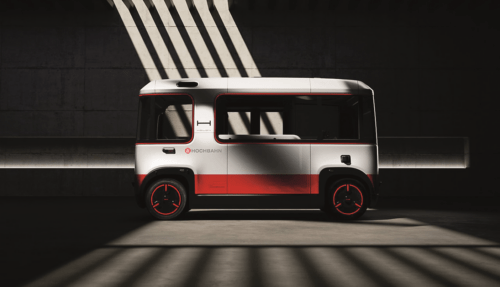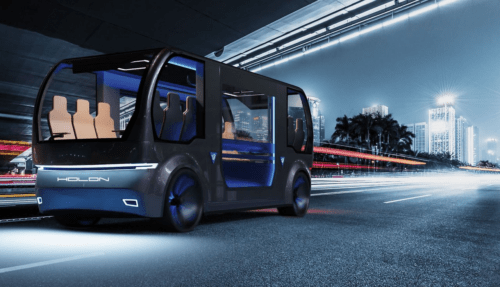
GERMANY
Hamburg residents should be able to get a mobility service that suits their need within five minutes by 2030, according to plans made as part of the city’s ‘Hamburg-Takt’ initiative which aims to increase the market share of public transport from 22% in 2017 to 30% by 2030. Whilst the backbone of the plan is the city’s buses and trains, the city’s public transport stakeholders recognise that it will not be possible to achieve the mobility transition with those alone, and believe that complementing classic public transport with on-demand shuttles is the answer.
As part of the plans, city transport operator Hamburger Hochbahn is working with Holon to bring autonomous minibuses to Hamburg’s streets from as early as 2024. At five metres long, with room for 15 people and travelling at up to 60kmh, the Holon Mover is both autonomous and emission-free.
The city’s ALIKE project aims to deliver up to 10,000 on-demand shuttles by as early as 2030, and in order to develop a ridepooling system Hochbahn, the lead partner in the project, has joined forces with on-demand service provider Moia and the vehicle manufacturers Volkswagen Commercial Vehicles and Holon. The Karlsruhe Institute of Technology (KIT) is also involved as a research partner.
ALIKE is supported by Germany’s Federal Ministry for Digital Affairs and Transport with funding of €26 million.
The first Movers for are expected to arrive in 2024 and go into test operation from 2025. During initial testing and pilot operation, a human escort will still be on board, and it is initially intended to gather important experience for later operation and to create the prerequisites for the legal framework of autonomous vehicles.
Hochbahn has already demonstrated how an automated minibus can function in urban transport with its HEAT project in Hamburg’s HafenCity district between 2019 and 2021, one of the first projects in the world to use autonomous driving for public transport on a fixed route without planned intervention by a driver.


